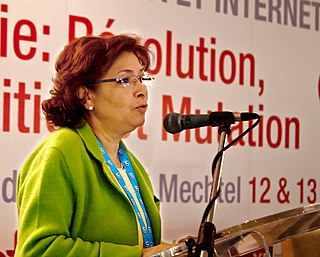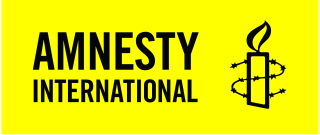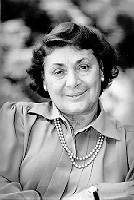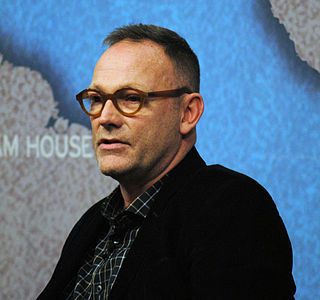This article describes the use of torture since the adoption of the 1948 Universal Declaration of Human Rights (UDHR), which prohibited it. Torture is prohibited by international law and is illegal in most countries. However, it is still used by many governments.

Nataša Kandić is a Serbian human rights activist and coordinator of the RECOM Reconciliation Network, founder and ex-executive director of the Humanitarian Law Center (HLC), an organization campaigning for human rights and reconciliation in the former Yugoslavia, focusing on the Serbian role in the conflict. It was formed in 1992. The HLC's research was integral to the war crimes prosecutions of the International Criminal Tribunal for the Former Yugoslavia (ICTY), particularly the "smoking gun" video linking Serbian military forces to the Srebrenica massacres. She has won numerous international awards for her human rights work. She is a figure of controversy in Serbia where she was the subject of a defamation lawsuit by former President of Serbia Tomislav Nikolić.

Sihem Bensedrine is a Tunisian journalist and human rights activist. In 2005, she was honored with the Oxfam Novib/PEN Award.
Torture in Bahrain refers to the violation of Bahrain's obligations as a state party to the United Nations Convention against Torture and Other Cruel, Inhuman or Degrading Treatment or Punishment and other international treaties and disregard for the prohibition of torture enshrined in Bahraini law.
Human rights in Indonesia are defined by the 1945 Constitution and the laws under it; several rights are guaranteed especially as a result of the constitutional amendments following the Reform era. The Ministry of Law and Human Rights deals with human rights issues in the cabinet, and the National Commission on Human Rights, established in Suharto's New Order administration in 1993, is the country's national human rights institution.
The Amnesty International Media Awards are a unique set of awards which pay tribute to the best human rights journalism in the UK. Kate Allen, Amnesty International UK's director, said that the awards recognise the "pivotal role of the UK media industry in informing and shaping public opinion" and pays tribute to their "often dangerous work". The awards acknowledge the creativity, skills and sheer determination that it takes to get the news out in an educational and engaging way.

From the Imperial Pahlavi dynasty, through the Islamic Revolution (1979), to the era of the Islamic Republic of Iran, government treatment of Iranian citizens' rights has been criticized by Iranians, international human rights activists, writers, and NGOs. While the monarchy under the rule of the shahs was widely attacked by most Western watchdog organizations for having an abysmal human rights record, the government of the Islamic Republic which succeeded it is considered still worse by many.

Amnesty International is an international non-governmental organization focused on human rights, with its headquarters in the United Kingdom. The organization says it has more than ten million members and supporters around the world. The stated mission of the organization is to campaign for "a world in which every person enjoys all of the human rights enshrined in the Universal Declaration of Human Rights and other international human rights instruments." The organization has played a notable role on human rights issues due to its frequent citation in media and by world leaders.
Tell Magazine is a weekly News magazine published in Nigeria. In 2007, BBC News described it as "one of Nigeria's most respected news magazines".

Ginetta Sagan was an Italian-born American human rights activist best known for her work with Amnesty International on behalf of prisoners of conscience.

Ignacio Gómez is a Colombian journalist known for his high-risk reporting on organized crime, corruption, and paramilitary groups. In 2000, he received the "Special Award for Human Rights Journalism Under Threat" Amnesty Media Award. In 2002, he was awarded the International Press Freedom Award of the Committee to Protect Journalists.
Human rights abuses in Jammu and Kashmir range from mass killings, enforced disappearances, torture, rape and sexual abuse to political repression and suppression of freedom of speech. The Indian Army, Central Reserve Police Force (CRPF), and Border Security Personnel (BSF) have been accused of committing severe human rights abuses against Kashmiri civilians. According to Seema Kazi, militant groups have also been held responsible for similar crimes, but the vast majority of abuses have been perpetrated by the armed forces of the Indian government.
The Amnesty International UK Media Awards 2012 were opened in December 2012, the short-list was published 25 April 2012 and the awards announced 29 May 2012.
The 9th was held at BAFTA(British Academy of Film and Television Arts) on 22 June 2000. The host was Michael Mansfield QC.
The 7th annual Amnesty International UK Media Awards took place on 25 June at the Park Lane Hotel, London. The awards ceremony was hosted by Melvyn Bragg.
Six awards were awarded in the categories: National Print; Periodicals; Photojournalism; Radio; Television Documentary; and Television News.
The Amnesty International UK Media Awards 1995 were awarded in five categories: National Print, Periodicals, Radio, Television Documentary and Television News. Two awards were given in the Television Documentary category.
In total 6 awards were presented for National Print, Periodicals, Photojournalism, Radio, Television Documentary and Television News.

Michael Benedict Emmerson CBE KC is a British barrister, specialising in public international law, human rights and humanitarian law, and international criminal law. From 2011 to 2017, he was the UN Special Rapporteur on Human Rights and Counter-Terrorism. Emmerson is currently an Appeals Chamber Judge of the UN Mechanism for International Criminal Tribunals sitting on the Criminal Tribunals for the Former Yugoslavia and Rwanda. He has previously served as Special Adviser to the Prosecutor of the International Criminal Court, and Special Adviser to the Appeals Chamber of the ECCC.
Kristyan Benedict is crisis response manager for Amnesty International UK (AIUK). His main area of responsibility is Syria.






